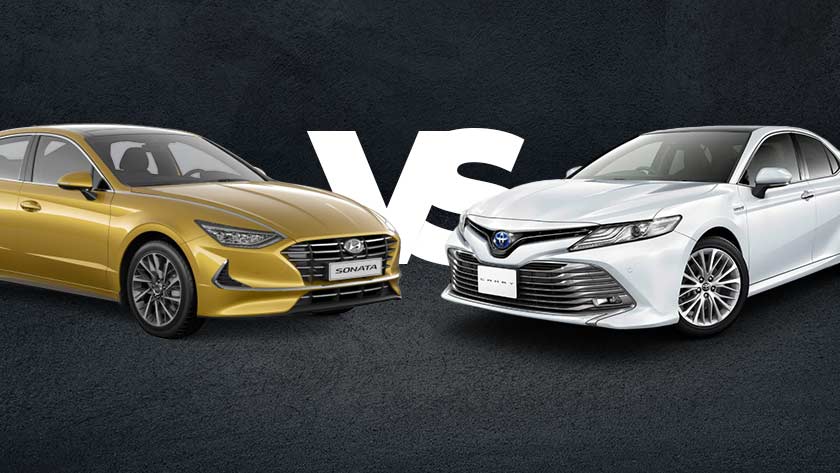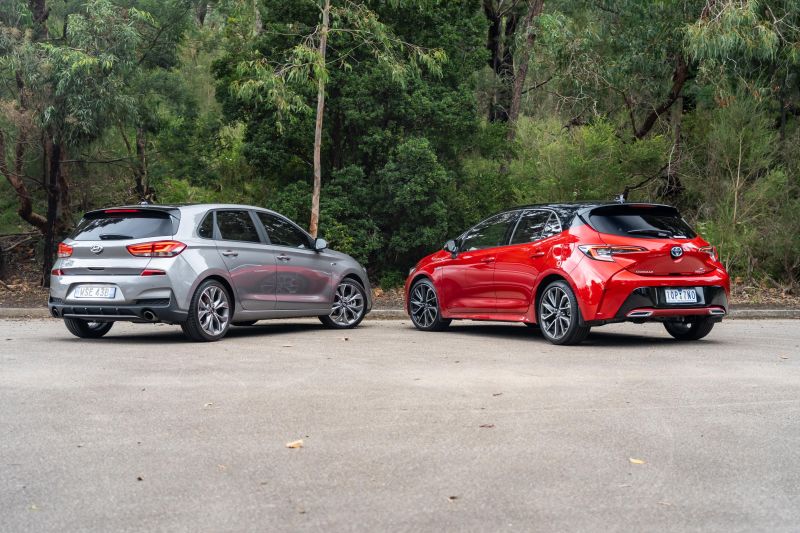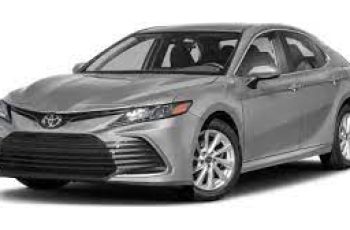Hyundai vs. Toyota: Automotive Giants Compared
Comparing Hyundai and Toyota cars involves examining various aspects such as performance, safety, technology, design, and pricing. Here are 50 detailed comparisons and differences between the two brands:

Hyundai vs. Toyota: Automotive Giants Compared
- Brand Reputation: Toyota is known for its reliability and longevity, often considered more dependable than Hyundai, which has made significant strides in recent years but may still be perceived as less reliable by some.
- Model Range: Toyota offers a wider range of models, including sedans, SUVs, trucks, and hybrids, while Hyundai’s lineup is slightly more limited but still includes a variety of body styles.
- Design Language: Hyundai tends to have more daring and innovative designs, while Toyota’s designs are often more conservative and mainstream.
- Technology: Both brands offer advanced technology features, but Hyundai may have more cutting-edge tech in some models, such as the Hyundai Sonata’s Remote Smart Parking Assist.
- Infotainment Systems: Hyundai’s infotainment systems are generally praised for their user-friendliness and features, while Toyota’s systems are sometimes criticized for being less intuitive.
- Performance: Toyota is known for its reliable and efficient engines, while Hyundai has been focusing more on performance in recent years, with models like the Hyundai Veloster N offering impressive power and handling.
- Fuel Efficiency: Both brands offer fuel-efficient vehicles, but Toyota’s hybrid lineup, including the Prius and Camry Hybrid, is particularly renowned for its efficiency.
- Safety Features: Both brands prioritize safety, but Toyota’s Safety Sense suite of driver assistance features is widely praised for its effectiveness and availability across its lineup.
- Resale Value: Toyota vehicles typically have higher resale values than Hyundai vehicles, thanks to their reputation for reliability and longevity.
- Interior Quality: Toyota and Hyundai offer comparable interior quality, with both brands using high-quality materials in their vehicles.
- Price Range: Hyundai vehicles are often priced slightly lower than Toyota vehicles, making them more accessible to budget-conscious consumers.

Hyundai vs. Toyota: Automotive Giants Compared
- Warranty: Hyundai offers a longer warranty than Toyota, with a 5-year/60,000-mile basic warranty and a 10-year/100,000-mile powertrain warranty, compared to Toyota’s 3-year/36,000-mile basic warranty and 5-year/60,000-mile powertrain warranty.
- Resale Value: Toyota vehicles generally have better resale value compared to Hyundai due to Toyota’s reputation for reliability and durability.
- Reliability: Toyota is often perceived as more reliable than Hyundai, although both brands have been improving their reliability in recent years.
- Performance: Hyundai has been focusing more on performance-oriented vehicles, such as the Hyundai Veloster N and Hyundai Kona N, while Toyota has a reputation for more conservative performance.
- Technology: Hyundai often offers more advanced technology features, such as Hyundai’s Blue Link system and larger touchscreens, compared to Toyota’s offerings.
- Fuel Efficiency: Toyota has a strong reputation for fuel efficiency, especially with its hybrid vehicles like the Toyota Prius and Toyota Camry Hybrid, while Hyundai offers competitive fuel efficiency in its lineup.
- Safety Features: Both Hyundai and Toyota offer a range of safety features, but Toyota’s Safety Sense suite is often praised for its comprehensiveness and effectiveness.
- Interior Comfort: Hyundai vehicles are often praised for their comfortable and spacious interiors, while Toyota vehicles are known for their practicality and durability.
- Exterior Design: Hyundai tends to offer more modern and bold designs, while Toyota’s designs are often more conservative and timeless.
- Model Variety: Toyota offers a wider range of models, including sedans, SUVs, trucks, and hybrids, compared to Hyundai’s more focused lineup.
- Infotainment System: Hyundai’s infotainment systems are often praised for their user-friendliness and responsiveness, while Toyota’s systems are sometimes criticized for being less intuitive.
- Price: Hyundai vehicles are often priced competitively compared to Toyota vehicles, making them a more affordable option for many consumers.
- Dependability: Toyota has a long-standing reputation for dependability and longevity, while Hyundai has been improving in these areas in recent years.
- Performance: Hyundai has been focusing more on performance-oriented vehicles, such as the Hyundai Veloster N and Hyundai Kona N, while Toyota has a reputation for more conservative performance.
- Technology: Hyundai often offers more advanced technology features, such as Hyundai’s Blue Link system and larger touchscreens, compared to Toyota’s offerings.
- Safety Features: Both Hyundai and Toyota offer a range of safety features, but Toyota’s Safety Sense suite is often praised for its comprehensiveness and effectiveness.
- Interior Comfort: Hyundai vehicles are often praised for their comfortable and spacious interiors, while Toyota vehicles are known for their practicality and durability.
- Exterior Design: Hyundai tends to offer more modern and bold designs, while Toyota’s designs are often more conservative and timeless.
- Model Variety: Toyota offers a wider range of models, including sedans, SUVs, trucks, and hybrids, compared to Hyundai’s more focused lineup.
- Infotainment System: Hyundai’s infotainment systems are often praised for their user-friendliness and responsiveness, while Toyota’s systems are sometimes criticized for being less intuitive.
- Price: Hyundai vehicles are often priced competitively compared to Toyota vehicles, making them a more affordable option for many consumers.
- Dependability: Toyota has a long-standing reputation for dependability and longevity, while Hyundai has been improving in these areas in recent years.
- Technology: Hyundai often offers more advanced technology features, such as Hyundai’s Blue Link system and larger touchscreens, compared to Toyota’s offerings.
- Fuel Efficiency: Toyota has a strong reputation for fuel efficiency, especially with its hybrid vehicles like the Toyota Prius and Toyota Camry Hybrid, while Hyundai offers competitive fuel efficiency in its lineup.
- Safety Features: Both Hyundai and Toyota offer a range of safety features, but Toyota’s Safety Sense suite is often praised for its comprehensiveness and effectiveness.
- Interior Comfort: Hyundai vehicles are often praised for their comfortable and spacious interiors, while Toyota vehicles are known for their practicality and durability.
- Exterior Design: Hyundai tends to offer more modern and bold designs, while Toyota’s designs are often more conservative and timeless.
- Model Variety: Toyota offers a wider range of models, including sedans, SUVs, trucks, and hybrids, compared to Hyundai’s more focused lineup.
- Infotainment System: Hyundai’s infotainment systems are often praised for their user-friendliness and responsiveness, while Toyota’s systems are sometimes criticized for being less intuitive.
- Price: Hyundai vehicles are often priced but Toyota’s Safety Sense suite of driver-assist features is highly regarded and comes standard on many models.
- Interior Quality: Toyota tends to have more conservative interior designs but with solid build quality, while Hyundai’s interiors may have more modern styling but sometimes with cheaper materials.
- Resale Value: Toyotas generally have higher resale values compared to Hyundais, thanks to Toyota’s reputation for longevity and reliability.
- Warranty: Hyundai offers a longer warranty than Toyota, with a 10-year/100,000-mile powertrain warranty compared to Toyota’s 5-year/60,000-mile powertrain warranty.
- Price Range: Hyundai’s vehicles tend to be more affordable than Toyota’s, making them more accessible to budget-conscious buyers.
- Dealer Network: Toyota has a larger and more established dealer network compared to Hyundai, which can be beneficial for service and support.
- Off-Road Capability: Toyota’s SUVs and trucks, like the 4Runner and Tacoma, are known for their off-road capabilities, which may be superior to Hyundai’s offerings.
- Reliability Ratings: Toyota often scores higher in reliability ratings from organizations like J.D. Power and Consumer Reports compared to Hyundai.
- Hybrid and Electric Vehicles: Toyota has been a pioneer in hybrid technology with models like the Prius, while Hyundai has been expanding its hybrid and electric vehicle lineup with models like the Ioniq and Kona Electric.
- Customization Options: Hyundai may offer more customization options for certain models compared to Toyota, allowing buyers to personalize their vehicles more.
- Performance Versions: Hyundai has the N performance division, which produces high-performance versions of its cars, while Toyota has the GR division for similar purposes.
- Driver Engagement: Hyundai’s vehicles are often praised for their engaging driving dynamics, while Toyota’s focus more on comfort and ease of driving.
- Towing Capacity: Toyota’s trucks and SUVs generally have higher towing capacities compared to Hyundai’s, which may be important for buyers needing towing capability.
This comparison provides a comprehensive look at the differences between Hyundai and Toyota cars, highlighting their respective strengths and areas where they excel.
Pls share among families and friends. For more details Call +2348053396336 WhatsApp +2348036030232



